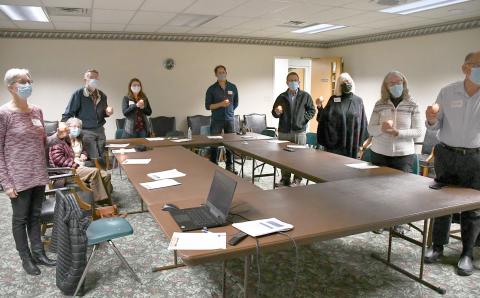The Black church was my training ground in surviving in this thing called America. I was born into the Black church from a generation of people who were enslaved in Georgia and Mississippi before the Civil War. The Black church traveled with my parents from Mississippi to Chicago when John and Essie Smith settled into Lawndale and gave birth to seven children. I was the third child. The Black church taught me that my somebody-ness came from Jesus, despite racism. He already accepted me and placed me in a community where the message of love was reinforced every Sunday.
When I watched the PBS documentary The Black Church, scholar and author Henry Louis Gates took me on a tour of my life at Unity Fellowship Baptist Church on Chicago’s West Side where song, sermon, activism, and leadership was drilled into me. Gates, the author of several books on African American history and a professor at Harvard University, admitted that this documentary was the first time he explored this most pivotal American institution. Gates found the religion of his childhood he had forgotten in West Virginia.
The two-part television series gave birth to a companion book by the same name. The book provides an opportunity to slow down and absorb the two important stories of American history, “one of a people defining themselves in the presence of higher power and the other of their journey for freedom and equality in a land where power itself—and even humanity for so long was (and still is) denied them.” Oprah Winfrey suggests that the Black church “gave people a sense of value and worthiness. I don’t know how we could have survived as a people without it.”
Gates invites the reader onto the Black church train, to grab a window seat and engage in the atmosphere of American religious life. There are wonderful guides such as Princeton University’s Eddie Glaude, Rice University’s Anthony Pinn, and Wake Forest University’s Jonathan Walton. These scholars illuminate how rejection from the white church led to the first Black denomination, the African Methodist Episcopal Church in Philadelphia by Richard Allen and Absalom Jones. The trip through almost 400 years of Black history provides color, emotion, and much appreciation of how Black people adopted and adapted the very religion that enslaved them into a powerhouse for citizenship, voting rights, and social justice.
The Black church was the birthing room of Black leadership from politics to popular culture. America received sheer excellence in music from the place where gospel, rock, blues, jazz, hip-hop, and rap were hewn from the stone of celebration and consolation. We would not have had the likes of Aretha Franklin, Barack Obama, Andrew Young, Marvin Gaye, and Martin Luther King, Jr. if it were not for the Black church.
This beautifully made book offers readers in our denomination an understanding of the essential role of Black people, whether in the American church at large, or even in the Christian Reformed Church, and all the value they brought with them, an array of gifts to bless all of God’s people. (Penguin Random House)
About the Author
Reginald Smith is the Director of Diversity for the Christian Reformed Church. He attends Madison Square Church in Grand Rapids, Mich.








